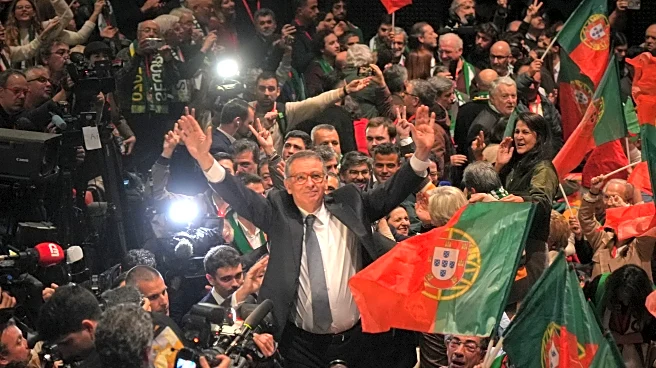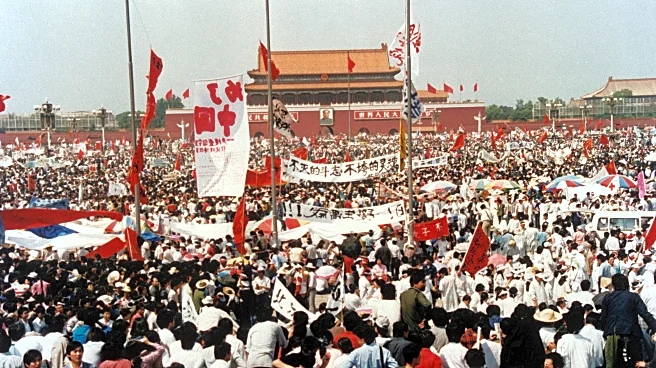What is the story about?
What's Happening?
The 82nd Venice International Film Festival showcased the world premiere of 'The Wizard of the Kremlin,' a film directed by Olivier Assayas. The red carpet event featured prominent actors such as Jude Law, Paul Dano, and Alicia Vikander. The film, which is part of the main competition, stars Dano as Vadim Baranov, a former avant-garde artist and reality TV show producer. He becomes an unofficial advisor to Vladimir Putin, portrayed by Law, as Putin ascends the post-Soviet political hierarchy. The film is based on Giuliano Da Empoli's 2022 satirical novel, with Emmanuel Carrere adapting the screenplay. Other cast members present included Will Keen, Tom Sturridge, Jeffrey Wright, and Andrei Zayats.
Why It's Important?
The premiere of 'The Wizard of the Kremlin' at a prestigious event like the Venice Film Festival highlights the film's potential impact on international cinema. By exploring the political dynamics of post-Soviet Russia through a satirical lens, the film may offer audiences a unique perspective on global political narratives. The involvement of high-profile actors such as Jude Law and Paul Dano further elevates the film's visibility and potential influence. This event underscores the festival's role in promoting diverse storytelling and fostering discussions on political themes in cinema.
What's Next?
Following its premiere at the Venice Film Festival, 'The Wizard of the Kremlin' may continue to gain attention at other international film festivals and potentially secure distribution deals for wider release. The film's reception by critics and audiences could influence its success and impact on future political dramas. Additionally, discussions around the film's portrayal of Vladimir Putin and Russian politics may spark broader conversations about the intersection of art and political commentary.
Beyond the Headlines
The film's satirical approach to Russian politics may provoke debates on the ethical responsibilities of filmmakers when depicting real-world figures and events. It could also contribute to ongoing discussions about the role of satire in challenging political power structures and engaging audiences in critical reflection. The film's narrative may resonate with viewers interested in the complexities of political advisory roles and the influence of media on governance.
















